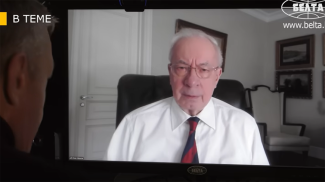MINSK, 21 October (BelTA) – The immunization drive is gaining momentum in Belarus, First Deputy Healthcare Minister Yelena Bogdan told reporters, BelTA has learned.
“Vaccination is gathering speed. This is very encouraging. In some regions nearly 35% of the population (children included) has already got a vaccine shot. There are polyclinics in Minsk and the regions that vaccinated more than 50% of the older population and people with chronic diseases. Today, vaccination is our number one task,” Yelena Bogdan said.
As the country launched its vaccination drive about nine months ago, it is going to embark on administering booster shots. “Yesterday the minister signed an order to change the approach to giving booster shots. Initially, we recommended to get a booster vaccine 9-12 months after the second dose of the vaccine. However, taking into consideration how the situation is developing and after analyzing vaccinated patients, we arrived at a conclusion that booster shots should be given 6-12 months after the second dose. Everything will depend on the general health condition and chronic diseases,” the first deputy minister said.
“Today vaccination is a hot topic. Whatever opinions may be, experts realize that vaccination is the only way to stop this pandemic, prevent severe cases, reduce the number of people who need intensive care and advanced treatment (mechanical ventilation and in some cases ECMO),” Yelena Bogdan noted.
Speaking about the mask requirement, she noted that people do not ignore this requirement. “People hear us. They wear face masks in public places: in transport, at public events,” she said. Yelena Bogdan added that there is no need to wear masks outside provided a safe distance is observed.
Moreover, public associations have mobilized to promote vaccinations. The COVID patrol campaign is underway: volunteers are deployed at malls to give masks to people who are not wearing them. Now young people are handing out brochures and leaflets with information on safety measures.
The first deputy minister emphasized the importance of communicating correct and adequate information on how people can protect themselves and their families from the infection. “Get a jab, encourage your family and friends to get a vaccine. Pregnant women and couples planning to have children should also be vaccinated,” she added.













